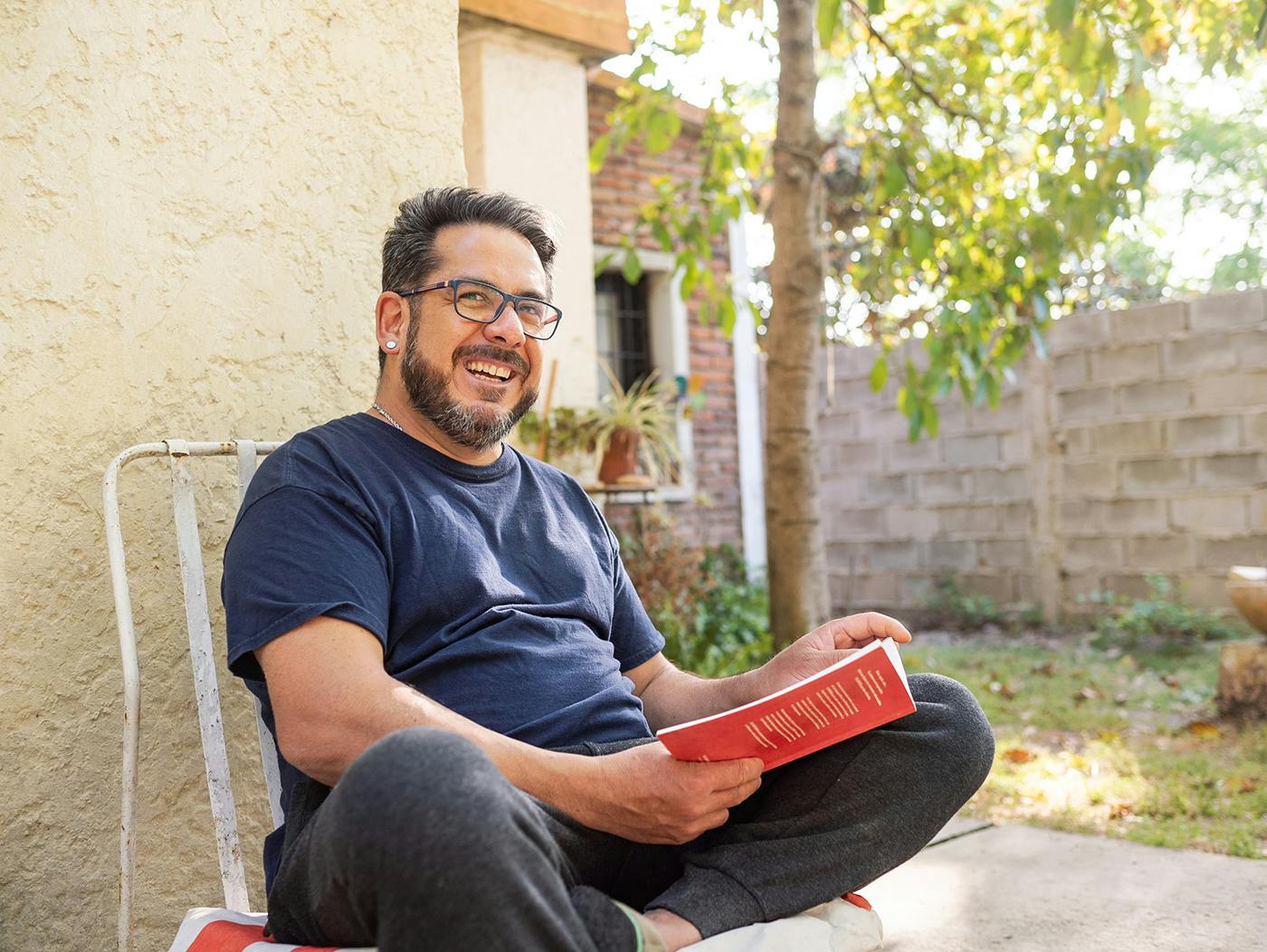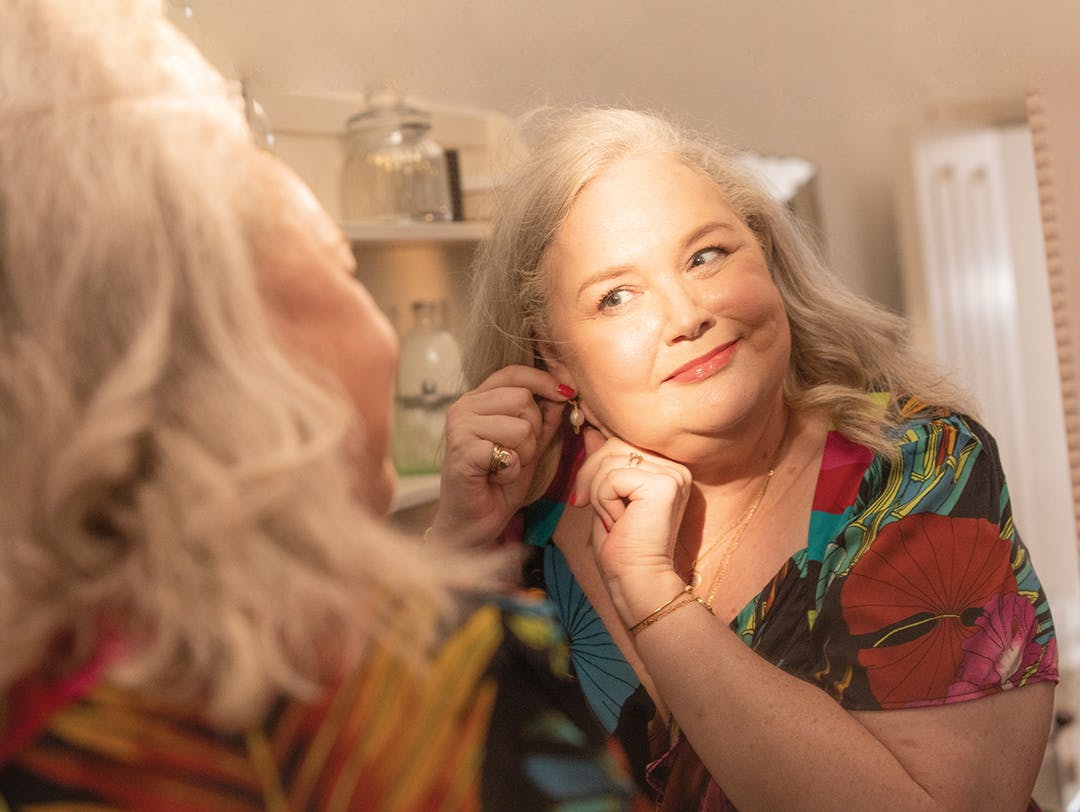HOW TO TALK TO YOUR DOCTOR ABOUT HIV
Working together with your healthcare team to understand what's going on within your body may be the best way to get the most from your HIV care.
Being involved in decisions about your treatment can bring lots of benefits too. You’re more likely to feel satisfied with your care, worry less about side effects and better understand how antiretroviral therapy (ART) can benefit you.1
Remember, you are surrounded by experts. Use their strengths and knowledge for your benefit, so that you can live your best life with HIV.
BUILDING A STRONG RELATIONSHIP
Your HIV healthcare team is there to help you achieve the best possible health-related quality of life, but you also play a big part in making that happen. That’s why the relationships you build with the team responsible for your HIV care are so important.
Working together
For Bratislav, a good relationship between people living with HIV and their healthcare professionals means working together to create the best possible solutions for each individual.
Setting goals with your healthcare team
As a member of your healthcare team, your doctor’s first priority is to make sure your HIV treatment is a good fit for you and your lifestyle. However, living a healthy and happy life with HIV is about lots more than medication. Your time with your healthcare team is an opportunity to chat about your health goals, so together you can set the wheels in motion to help you achieve the quality of life you want.3
By communicating your needs, goals and preferences to your healthcare team, you can work together to ensure you feel empowered in your care.
Based on insight from two HIV doctors, here are some of the goals your healthcare team may have in mind when making a plan for your care:
Remember, you should feel safe, comfortable and respected within your HIV team. Feeling able to talk to them openly about whatever you’re experiencing is vital, from adherence struggles and treatment uncertainties to self-stigma and mental health. The more they know, the easier it will be to work together to ensure you’re continuing to live a happy and healthy life with HIV.1
Read on to learn more about the importance of building strong, open relationships with your HIV healthcare team and discover how preparing for appointments can help you get more from your time with your doctor.
Meet your healthcare team
Understanding is key
Moritz shares how finding a doctor and healthcare team that fits you could make all the difference.
Going beyond treatment
Xiana and Christian talk about their relationships with their HIV specialist and the importance of sharing personal information that goes beyond their HIV treatment.
NP-GBL-HVU-WCNT-210107 | October 2023
OPEN COMMUNICATION
Good quality HIV care is about much more than viral suppression, it’s about understanding the impact that HIV has on all aspects of your life.3
Being able to chat openly with your doctor and wider healthcare team is essential. The more they know, the more they can help you.
Opening up about wellbeing
Moritz explains the importance of being able to talk openly with his doctor.
Finding your voice
Hear how Roman discovered his voice in his treatment to build a strong partnership with his healthcare team.
A full picture of your health and wellbeing
At your appointments, it’s always a good idea to talk about how your health has been, how you’re feeling in yourself and how you’ve coped with taking your medicines.1,4
Talking openly to your doctor about your HIV, health and wellbeing gives them the best picture of your overall health.4
You, your doctor and your wider healthcare team can work together to ensure the care you’re receiving takes into consideration not just your medical needs but your emotional health and quality of life too.4
Open communication
Dr Laura Waters discusses the factors that create a successful consultation with HIV advocate, Tom Hayes, and why open communication and talking to patients about more than just medication is key.
Benefits of open communication
Research has shown that having an open, active dialogue with your healthcare team, along with support from peers and community organisations can help people living with HIV:4
- Feel comfortable discussing treatment goals
- Have the confidence to voice concerns about treatment
- Talk honestly about their lifestyle choices
- Collaborate with their HCPs to manage their HIV effectively
Open discussions can help people feel empowered, educated and informed about their therapy choices.4
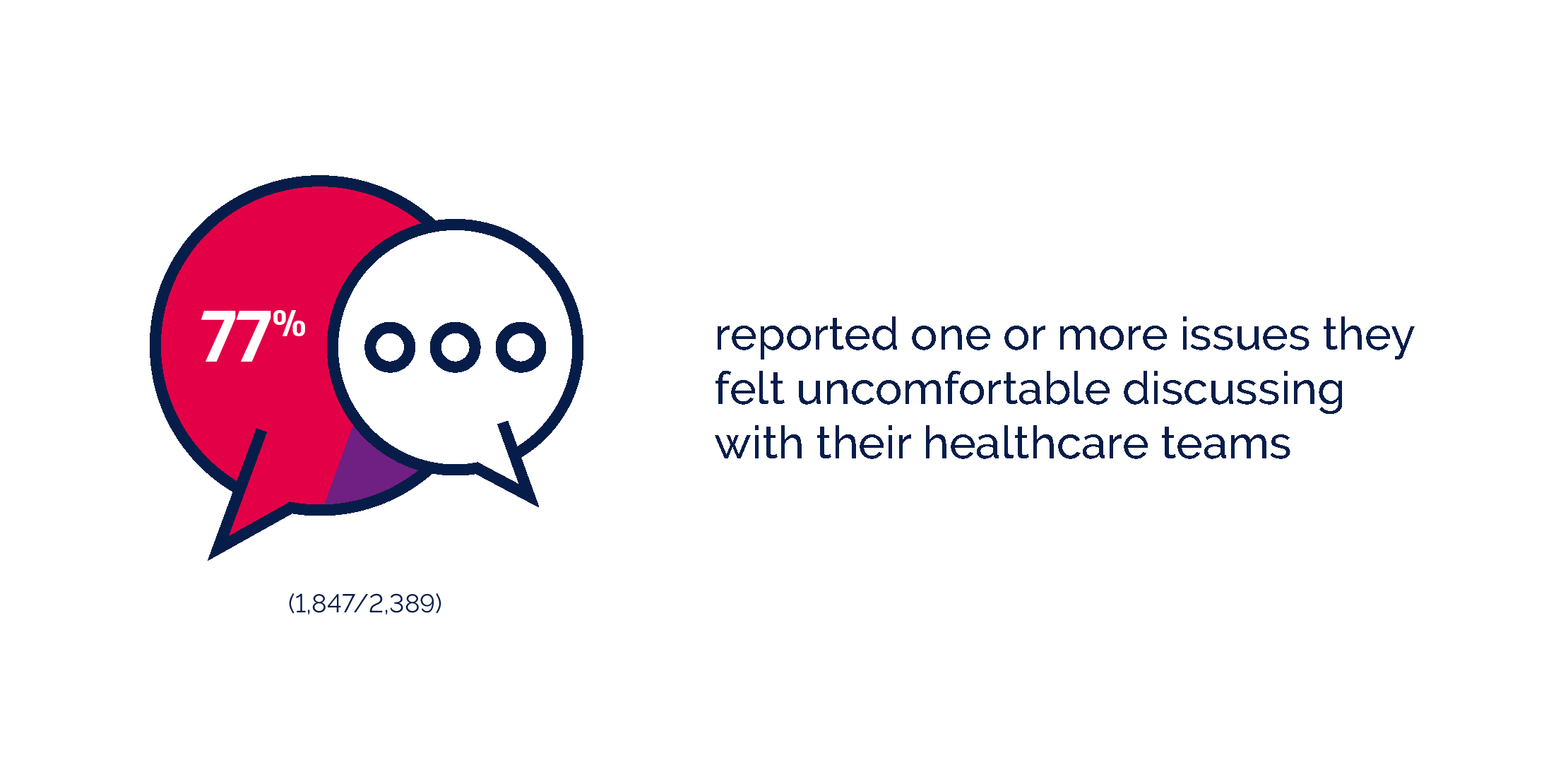
If you feel uncomfortable talking to your doctor about certain issues, you’re not alone. No matter how difficult it might be, doctors hear and see all sorts of things on a daily basis and aren’t going to judge you. Chances are they will have heard it all before.
There are things you can do to help you feel more at ease:
- Connect with an HIV peer mentor or community group to chat through your experiences
- Planning for your appointments will also help you feel in control
- Take a friend with you for moral support and to ask the uncomfortable questions on your behalf
It's all about getting the best care for you
To get the most from your care, you have a role to play to ensure your healthcare team know how you’re doing. Your health and wellbeing as someone living with HIV are about much more than your medication – it’s all about you as a whole person, and that includes your emotional health and your quality of life too.1,4
If you’ve been stressed at work, have money or relationship worries or even have a health concern unrelated to your HIV, share it with your team. No matter how big or small these issues are, they’re all important because they affect you. Your healthcare team can connect you with other support services and organisations that can provide the help and advice you need.
Open communication can empower women living with HIV
Women living with HIV face different challenges to men living with HIV. Many women find it difficult to talk about these things with their healthcare team.4
To hear more about how you can continue to thrive as a woman living with HIV, watch the videos below or listen to the “All woman” episode of our Positively Thriving podcast.
Being a woman with HIV
Marvellous explains some of the unique challenges women living with HIV face.
Finding the courage to open up
Xiana shares how some topics can be difficult for women to talk about but it’s still important to talk about them.

of women living with HIV want greater involvement in their care
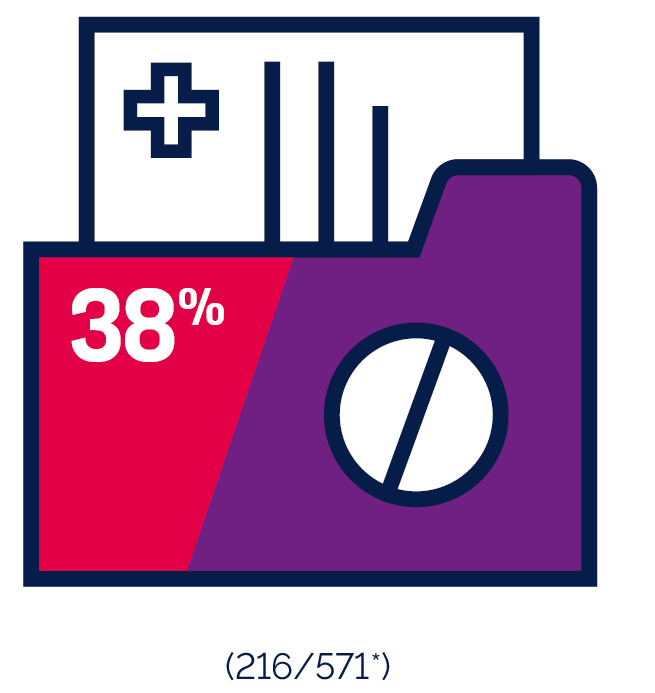
did not believe they were given enough information to be involved in making changes about their HIV treatment
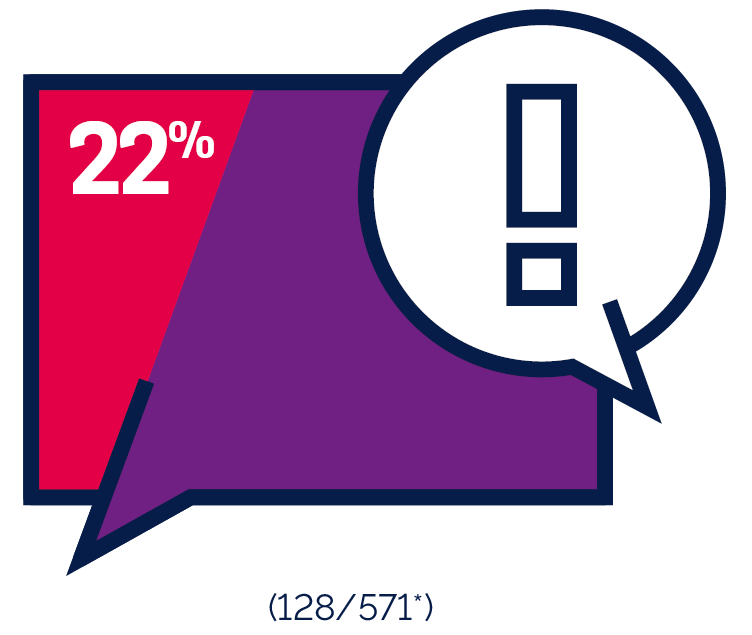
did not feel confident enough to raise their concerns with their healthcare team
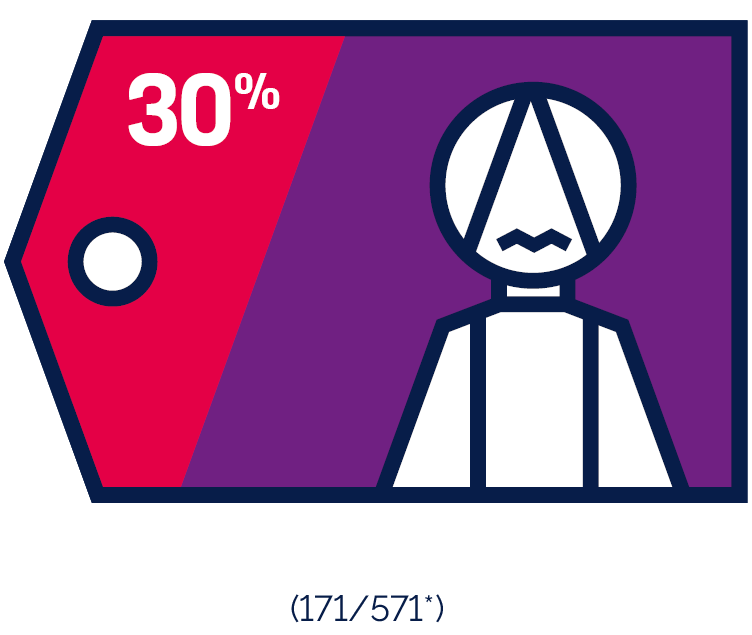
feared being labelled a ‘difficult patient’ by their healthcare team
*Total number of participants is 2,112 as the figures were calculated before the inclusion of additional data from Russia and South Africa.
If you can relate to this, reaching out to community support groups or connecting with a peer mentor may help. Chatting things through with people who understand what you’re going through can help you feel more at ease when talking to your doctor.
Read ‘Planning for your HIV appointments’ to learn more about how you can approach speaking to your doctor about the issues that matter to you and discover new ways to get more out of your HIV appointments.
NP-GBL-HVU-WCNT-210108 | May 2023


WHAT'S NEXT?
Living with HIV has changed. Thanks to innovations in antiretroviral treatment (ART), HIV is now a manageable condition.2 Read on to discover useful information, resources, and where to find support.
Having a long, healthy life should be achievable for most people living with HIV today.2 This may mean that your health and treatment needs change over time.
Once you've settled into your treatment regimen and are undetectable, you’ll likely only need to visit your clinic once or twice a year. Some of these appointments may even be online or over the phone.
References:
- Chen WT, Wantland D, Reid P, et al. Engagement with health care providers affects self- efficacy, self-esteem, medication adherence and quality of life in people living with HIV. J AIDS Clin Res. 2013;4(11):256.
- National Health Service. Living with HIV and AIDS. Available at: https://www.nhs.uk/conditions/hiv-and-aids/living-with/. [Accessed July 2023].
- ViiV Healthcare. Positive Perspectives Study, Wave 2 results report. Available at: https://viivhealthcare.com/content/dam/cf-viiv/viivhealthcare/en_GB/files/211203-updated-pp2-report-v9.0.pdf. [Accessed July 2023].
- DOF 2022. ViiV Community Steering Committee. Email. pg 1
- DOF 2022. Goals HCPs have in mind when considering their healthcare planning. ViiV content plan. Pg 1
- HIV.gov. Seeing your health care provider. Available at: https://www.hiv.gov/hiv-basics/staying-in-hiv-care/provider-visits-and-lab-test/seeing-your-health-care-provider/. [Accessed July 2023].
- Centers for Disease Control and Prevention. How do I keep patients with HIV in care? Available at: https://www.cdc.gov/stophivtogether/hiv-treatment/talk-treatment.html. [Accessed July 2023].
- NAM aidsmap. HIV, mental health & emotional wellbeing. Available at: https://www.aidsmap.com/about-hiv/hiv-mental-health-emotional-wellbeing. [Accessed July 2023].
- HIV.gov. Mental health. Available at: https://www.hiv.gov/hiv-basics/staying-in-hiv-care/other-related-health-issues/mental-health/. [Accessed July 2023].
NP-GBL-HVU-WCNT-210106 | May 2023
If you get any side effects, talk to your doctor, pharmacist, or nurse. This includes any possible side effects not listed in the package leaflet. You can also report side effects directly via the GSK Reporting Tool link https://gsk.public.reportum.com/. By reporting side effects, you can help provide more information on the safety of this medicine.
If you are from outside the UK, you can report adverse events to GSK/ ViiV by selecting your region and market, here.
